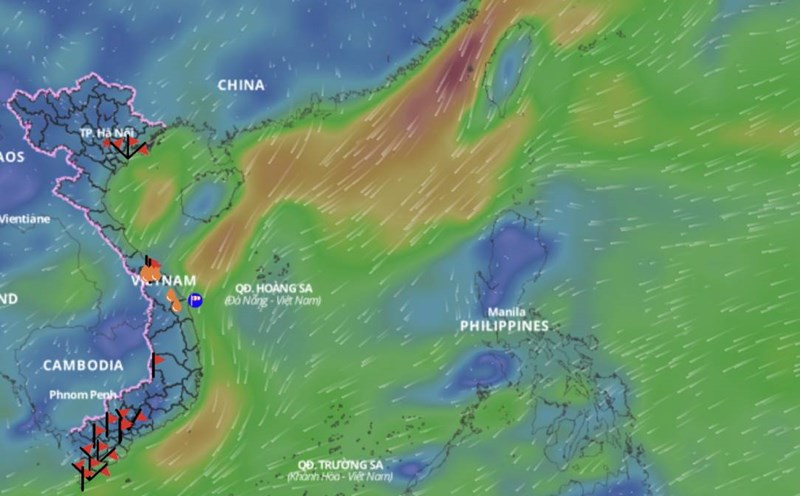In the past 3 days, cold air has affected the weather in the North. It is only cold at night and in the morning, during the day the temperature increases, sometimes it is hot with the highest temperature sometimes over 30 degrees Celsius; the difference in temperature between day and night is large.
Ms. Nguyen Thi Thanh Binh - Chief Forecaster of the Department of Numerical Forecasting and Remote Sensing, National Center for Hydro-Meteorological Forecasting has made analysis related to the nature of this northeast monsoon.

Madam, has the cold air caused a drop in temperature and how has the weather in the North changed?
- Due to the impact of cold air, the sea area has strong northeast winds of level 6 - 7, gusts of level 8 - 9, rough seas.
In most of the Northern Delta, the lowest temperature at night and early morning is at 20 - 22 degrees Celsius, in mountainous areas it drops below 17 degrees Celsius.
At the Chongqing Meteorological Station (Cao Bang), from the morning of November 19 until now, the minimum temperature has tended to decrease. Early morning of November 21, the temperature dropped to 16.6 degrees Celsius.
Similarly, in the capital Hanoi, the Ha Dong Meteorological Station recorded the lowest temperature dropping from 23.4 degrees Celsius on November 19 to 21.5 degrees Celsius in the early morning of November 20. On the morning of November 21, the minimum temperature was 20.8 degrees Celsius.
Many people wonder why people don't feel the cold during the day despite the cold weather forecast. Can you explain?
- When the forecast bulletin was released, it was stated that the lowest temperature would decrease and remain at 20 - 22 degrees Celsius, in mountainous areas below 17 degrees Celsius. The wind on the Gulf of Tonkin is strong at level 6, level 7 gusting to level 8. During the day, there are few clouds and sunny weather, so we feel that the weather will change little.
Because this cold front is very dry, the sky is still partly cloudy and sunny. In fact, the lowest temperatures usually fall at night and early morning. Based on measurements from the network of meteorological stations in the north, the lowest temperatures are also decreasing.
With the nature of such cold air, do you have any advice for people?
- Because it is still sunny during the day, the temperature during the day decreases but not much, we hardly feel it. At night, the temperature decreases, causing the temperature range between day and night to increase, which can easily affect our health such as respiratory problems...
One of the factors to note when cold air flows in is that the northeast wind in the Gulf of Tonkin will strengthen, causing rough seas, affecting ships and activities at sea. Fishermen and activities at sea need to pay attention when going out to sea to minimize the impact.
Thank you very much!











